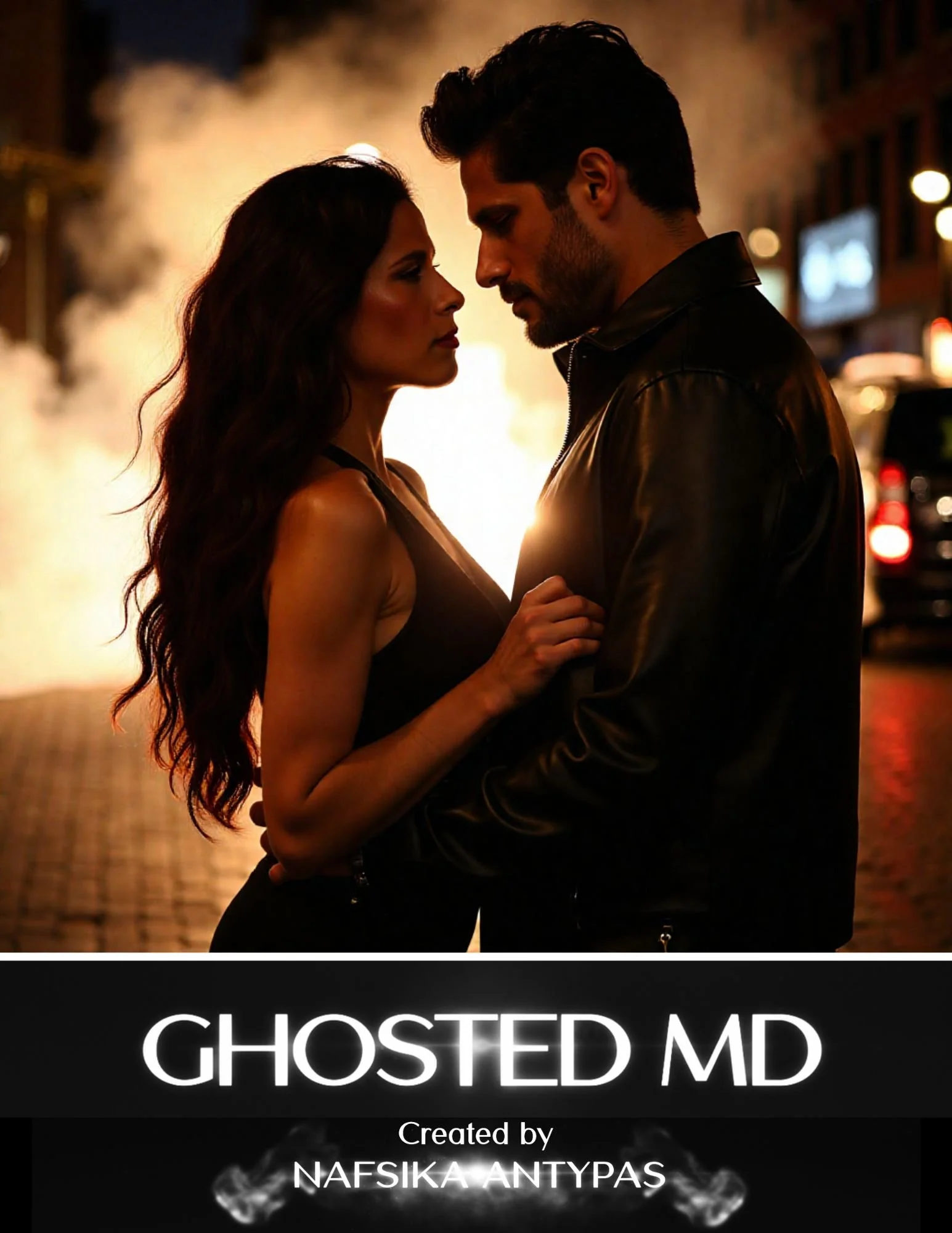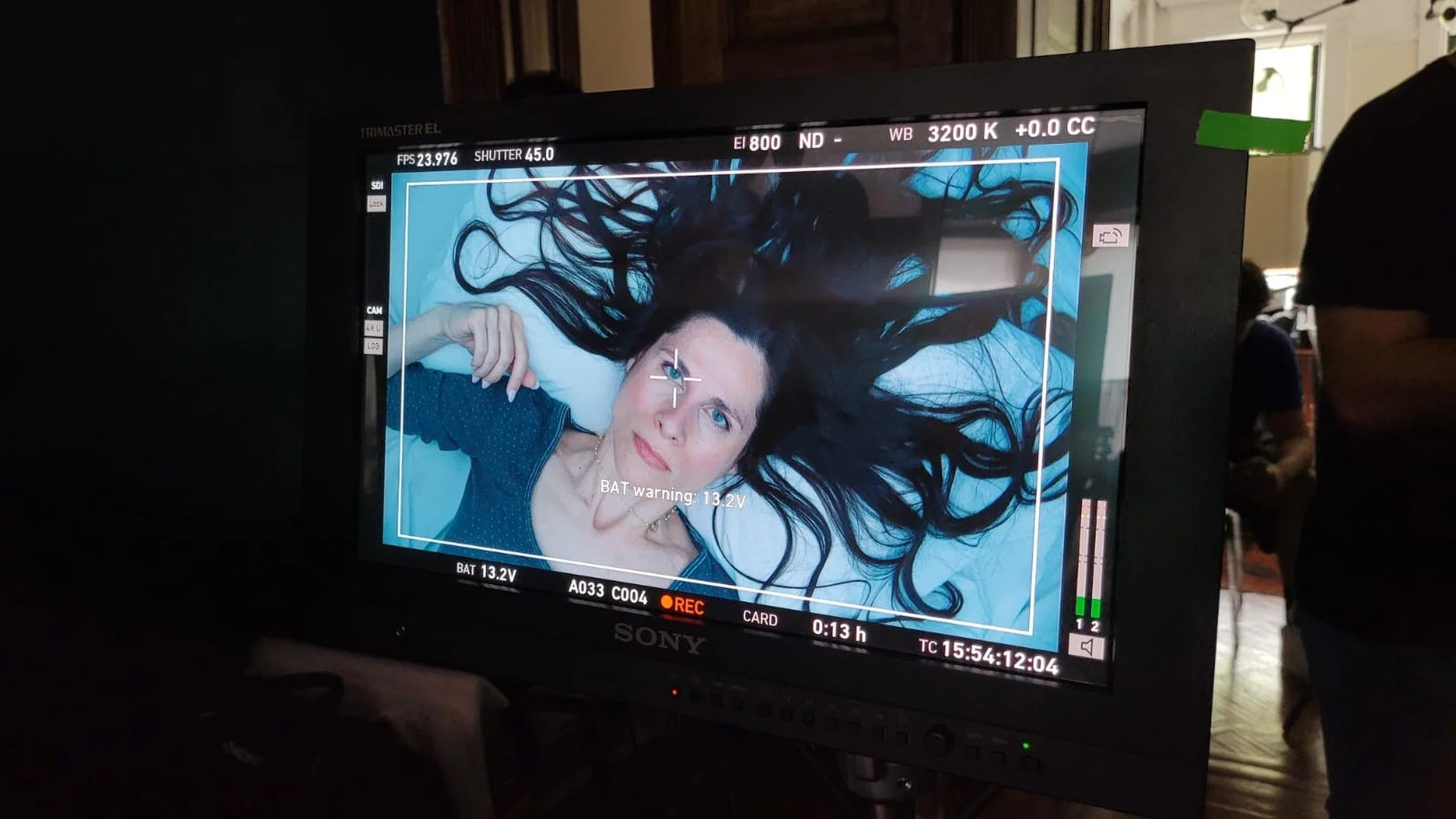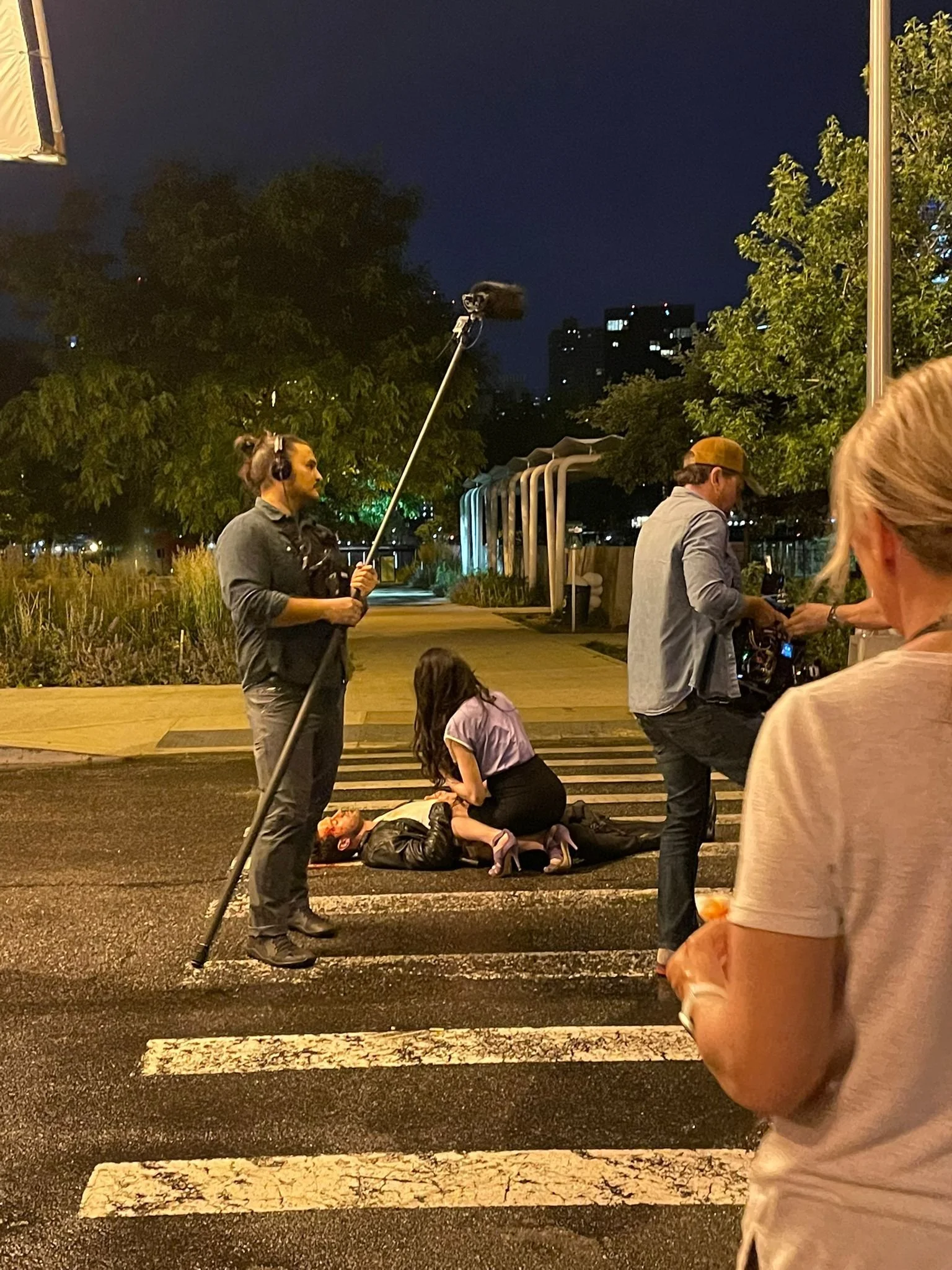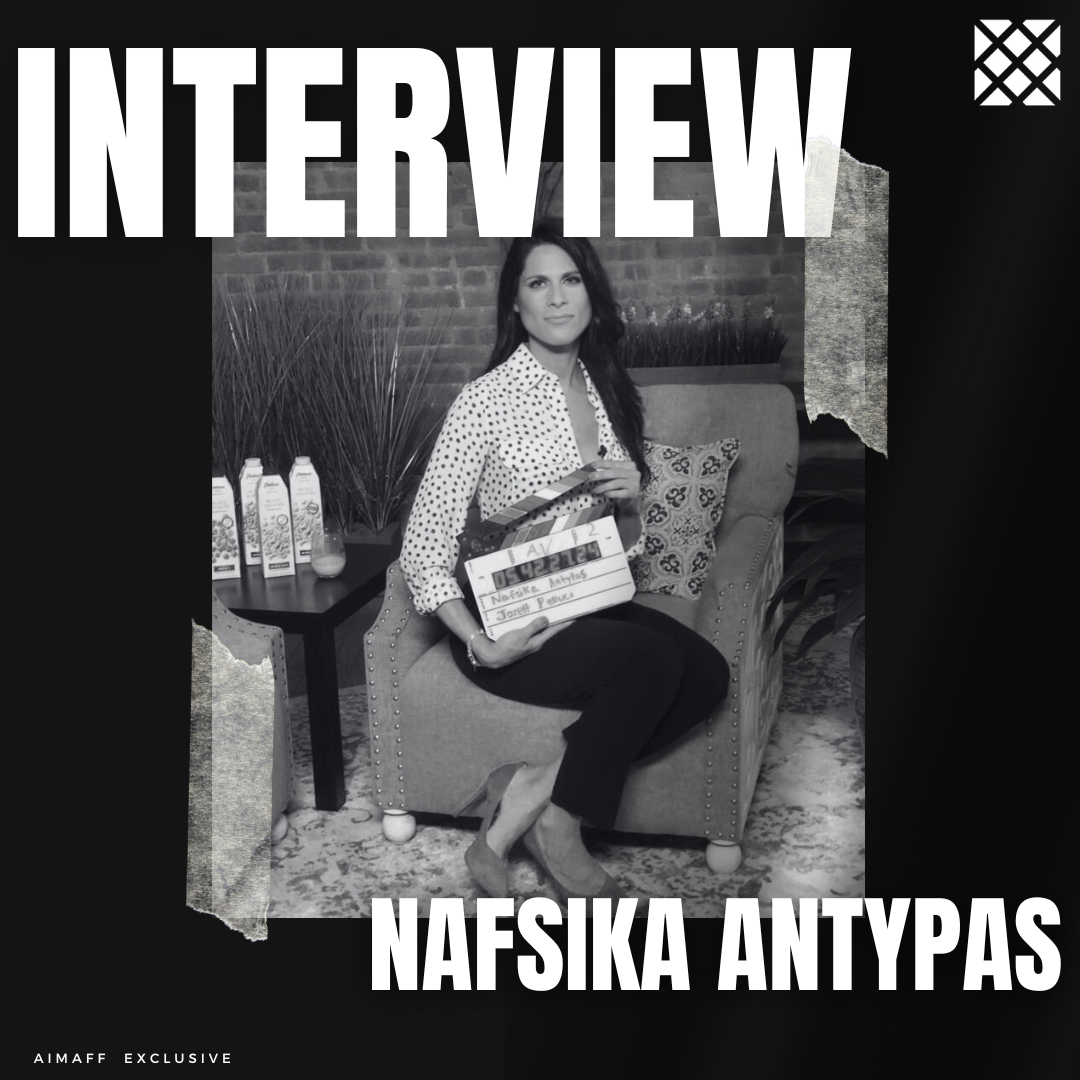Between Worlds: Nafsika Antypas on Love, Loss & Ghosted MD
Welcome Nafsika, we are very excited to have you today with us to discuss about your work.
Who is Nafsika Antypas and how did the passion for creating begin?
Nafsika Antypas is a Greek-Canadian television host, executive producer, actress, writer, and entrepreneur. Her passion for creating began with a love of storytelling and a belief that ideas can change lives. Growing up in Montreal and studying English literature at Concordia helped her learn how to translate imagination into media and messages. She channeled that drive into projects like Plant-Based by Nafsika, the first vegan lifestyle TV series, and most notably into Ghosted MD, her TV pilot/film concept that blends mystery, romance with a dose of the supernatural.. Her motto, “If You Plant It, It Will Grow,” guides her work across media, publishing, and entrepreneurship, encouraging small, deliberate actions that contribute to a kinder, more compassionate world.
Can you tell us a bit about your previous work?
Before producing the TV pilot/short film for Ghosted MD, I wrote the novel, which just got released on Amazon and several other major book platforms. Beyond Ghosted MD, I produced and hosted the world's first vegan lifestyle series, Plant-Based by Nafsika (three seasons on A&E from 2016-2019) and launched Nafsika’s Garden, a plant-based cheese brand, in 2019. I then produced two podcast shows (The Plant-Based Switch and Nafsika's View), and will soon be released my second book, The Plant-Based Switch. I’ve also pursued tech and wellness ventures, including Work Ambitions and Nafsika AI, to blend storytelling with practical, compassionate living.
Ghosted MD blends medical drama, supernatural mystery, romance, and crime thriller—what was the “spark” moment that made you realize this mash-up could work as one cohesive story?
This is going to sound strange but here it is... I penned her debut novel, Ghosted MD, during the COVID-19 pandemic in 2020. The inspiration for the story struck me one early morning when I was awakened by an unseen voice softly saying, “Hey,” which sparked the entire narrative and ignited my creative journey into the world of Ghosted. I'm very thankful for the spectral presence that whispered in my ear and sparked the genesis of this tale. His ethereal touch ignited a creative fire within me, propelling me to explore the realms of romance, fantasy, and mystery in a world where the living and the departed intersect.
CONVERSATION ABOUT: ''GHOSTED MD''
You wear multiple hats here—writer, lead actress, and producer. Which role first connected you to this story, and which one surprised you the most in its challenges?
I think I've always, first and foremost been a writer. I've always loved writing stories ever since I was a child. During the COVIDpandemic, I actually had time to sit down and finish a book. So, I took advantage of that and wrote four books in a matter of months. I love also giving myself goals and challenges so, this was a great motivator for me. Producing comes easy to me, since I tend to know what I want and prefer to be "hands on" in any project I do. What surprised me the most was that, while I've always had an intrigue and desire for acting, I couldn't believe I started to receive recognition for it; especially since this film was the first time reallly acting for me. I plan to hone this craft and get excel at it.
Dr. Anastasia Dimas is both a healer of hearts and someone haunted by her own—how much of your own life experience and emotional truth went into shaping her character?
Gosh, Dr. Anastasia is basically me but a touch more neurotic. I built her character around mine; that's why I just had to play this role.
She embodies the complexity of healing, both physically and emotionally. As a writer, I drew from my own experiences navigating personal challenges and emotional struggles. Like Stacey, I’ve faced moments of vulnerability that often clash with a professional facade. The duality of being a caregiver while grappling with one's own heartache resonated deeply with me. Stacey’s journey reflects the reality that healers are not immune to pain; they often carry their burdens silently. This emotional truth allows readers to connect with her on a profound level, making her journey toward self-acceptance and healing relatable. By channeling my own experiences into her character, I aimed to create a nuanced portrayal that emphasizes resilience and the importance of confronting one’s own demons while helping others.
Ghosted MD isn’t afraid to move from dark, suspense-filled moments to humor and warmth. How did you strike the tonal balance without losing narrative momentum?
Striking a tonal balance in Ghosted MD was essential to creating an engaging narrative that feels both authentic and relatable. I believe that life is a tapestry of contrasting emotions, where moments of levity often arise amidst darkness. By using humor as a means for Stacey to cope with her challenges, I aimed to provide readers with a realistic reflection of how people navigate grief and uncertainty. I introduced comedic elements through witty dialogue and Stacey’s playful banter with Jason, allowing readers to breathe between suspenseful moments. This interplay not only kept the narrative momentum flowing but also deepened character development, making their experiences more relatable. Ultimately, the tonal shifts serve to enhance the emotional stakes, allowing readers to invest in the characters' journeys while navigating the suspenseful plot.
The show explores redemption, both for the living and the dead. What does redemption mean to you personally, and how did you weave that meaning into the story?
Redemption, to me, is the journey of reclaiming one’s sense of self and finding peace after hardship. In Ghosted MD, both Stacey and Jason seek redemption through their interconnected journeys. For Stacey, it’s about confronting her past and learning to forgive herself for perceived failures. For Jason, it represents coming to terms with his life choices and the impact they had on others. By intertwining their paths, I aimed to show that redemption is not a solitary journey; it’s often about connection and understanding. This theme resonates throughout the story, illustrating how both the living and the dead can find solace and forgiveness through shared experiences and love.
In future projects, do you plan to explore similar genre intersections, or are there other genres you're eager to explore ?
Absolutely! I find the intersection of genres—particularly the blend of supernatural elements with real-world issues—fascinating. Ghosted MD serves as a springboard into exploring themes of love, loss, and the human experience through various lenses. In future projects, I’m eager to dive into more genre intersections, such as combining psychological thriller elements with magical realism or exploring dystopian settings that incorporate themes of hope and redemption. I believe these blends allow for richer storytelling and deeper emotional connections. Additionally, I’m drawn to crafting narratives that challenge societal norms while weaving in elements of humor and warmth, creating a tapestry of experiences that resonate with a broad audience.
The show explores redemption, both for the living and the dead. What does redemption mean to you personally, and how did you weave that meaning into the story?
Redemption is about transformation and the opportunity to make amends. Personally, it signifies the chance to learn from past mistakes and emerge stronger. In Ghosted MD, this theme is embodied through both Stacey and Jason as they navigate their intertwined fates. Stacey seeks to forgive herself for her perceived failures, while Jason confronts his past choices, ultimately striving for peace. By exploring their journeys, I aimed to illustrate that redemption is a shared experience, often facilitated through connection and understanding. This dual quest not only deepens their characters but also resonates with readers, highlighting the universal desire for healing and forgiveness.






